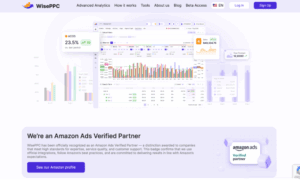In today’s digital economy, online marketplaces have emerged as powerful engines driving business growth worldwide. From nimble startups to established enterprises, companies are increasingly turning to marketplace platforms to expand their reach, forge connections with new customers, and streamline their operations. Yet the abundance of options can make selecting the right platform feel like navigating a labyrinth. This guide cuts through the complexity to highlight the essential features worth prioritizing when choosing a marketplace platform that truly aligns with your business vision.
Essential Features of a Robust Online Marketplace Platform
An online marketplace platform serves as the technological foundation enabling multiple sellers to showcase their products or services within a single digital environment. At its core, any successful platform must incorporate:
- User-friendly product catalog management
- Secure user accounts and authentication
- Reliable payment processing capabilities
- Order management and fulfillment tools
While these core features form the backbone of any marketplace, it’s ultimately the quality of the user experience and potential for scalability that determine long-term success.
Scalability and Flexibility: Preparing for Growth
Scalability isn’t just a nice-to-have it’s non-negotiable for businesses with growth ambitions. A platform that hums along perfectly with 100 products might buckle under the weight of 10,000. Take Handmade Collective, for instance. They initially opted for a basic platform but quickly outgrew its capabilities as their seller network expanded. Their transition to a more flexible architecture with modular design allowed them to introduce new features incrementally without disrupting day-to-day operations.
The capacity to handle increasing traffic, transactions, and data while maintaining performance isn’t just about present needs it’s about future-proofing your marketplace investment.
Security, Compliance, and Trust
Robust security measures form the bedrock of marketplace success. Look for platforms offering comprehensive data encryption, sophisticated fraud prevention mechanisms, and granular user privacy controls. Equally critical is compliance with industry regulations like PCI DSS for payment processing and GDPR for data protection.
Trust signals including transparent policies and authentic user reviews profoundly impact both buyer and seller confidence. A marketplace that prioritizes security doesn’t just protect data; it creates the foundation for sustainable growth.
Integration Capabilities and Ecosystem Support
Today’s marketplaces don’t and shouldn’t operate in isolation. Selecting an ecommerce marketplace solution that supports a wide range of integrations can dramatically improve operational efficiency and adaptability. The ability to connect seamlessly with payment gateways, shipping providers, inventory management systems, and analytics tools creates a cohesive ecosystem that enhances overall performance.
A vibrant developer community and well-documented APIs contribute significantly to operational efficiency by enabling custom integrations tailored to address specific business challenges.
Summing Up the Marketplace Platform Selection Journey
Choosing the right marketplace platform requires striking a delicate balance between immediate needs and long-term objectives. Prioritize features that align with your business model, anticipated growth trajectory, and customer expectations. The most successful marketplaces combine robust technical capabilities with the flexibility to adapt to evolving market conditions and shifting business requirements.
By methodically evaluating platforms against your specific criteria, you’ll position yourself to select a solution that supports sustainable growth and provides genuine competitive advantage in the dynamic and ever-evolving world of online commerce.



































